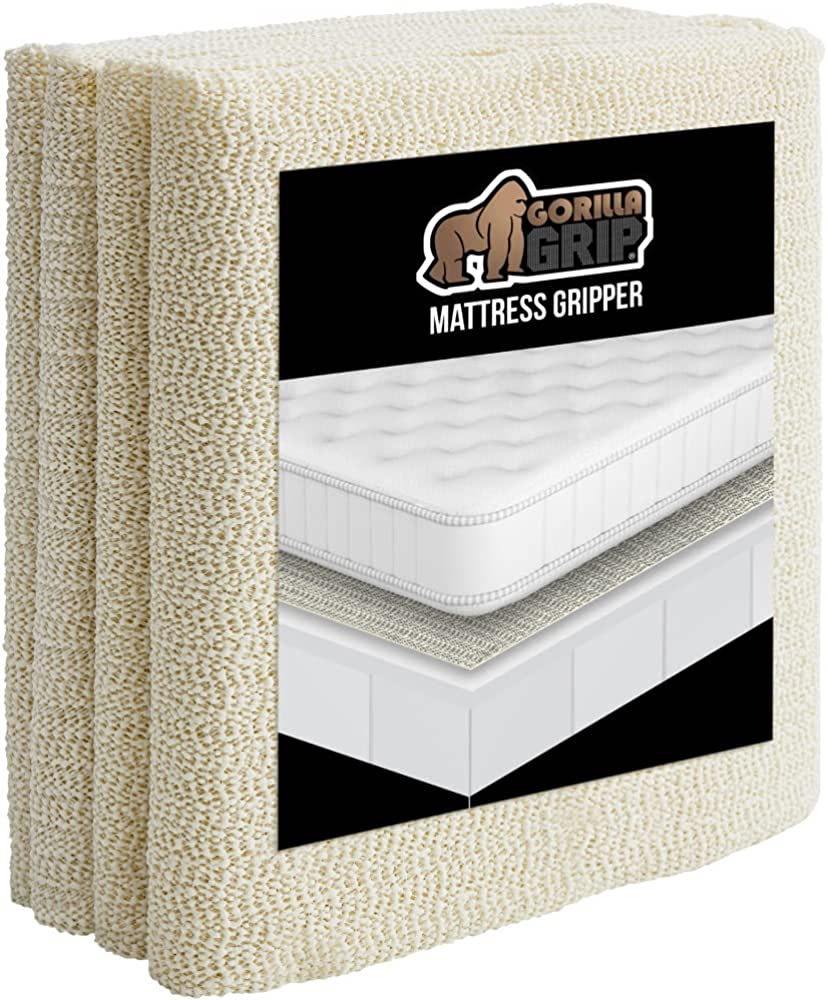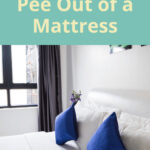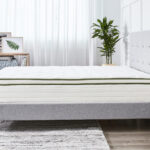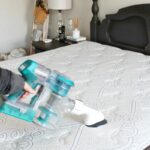Do you have trouble keeping your mattress pad from sliding around? Do you often wake up in the middle of the night to find your mattress pad bunched up at the foot of your bed? If so, you are not alone. Fortunately, with a few simple steps, you can easily learn how to keep your mattress pad from slipping and sliding around. In this article, we’ll explain how to easily stop your mattress pad from sliding, so you can get a good night’s sleep.
Causes of Mattress Pad Slipping
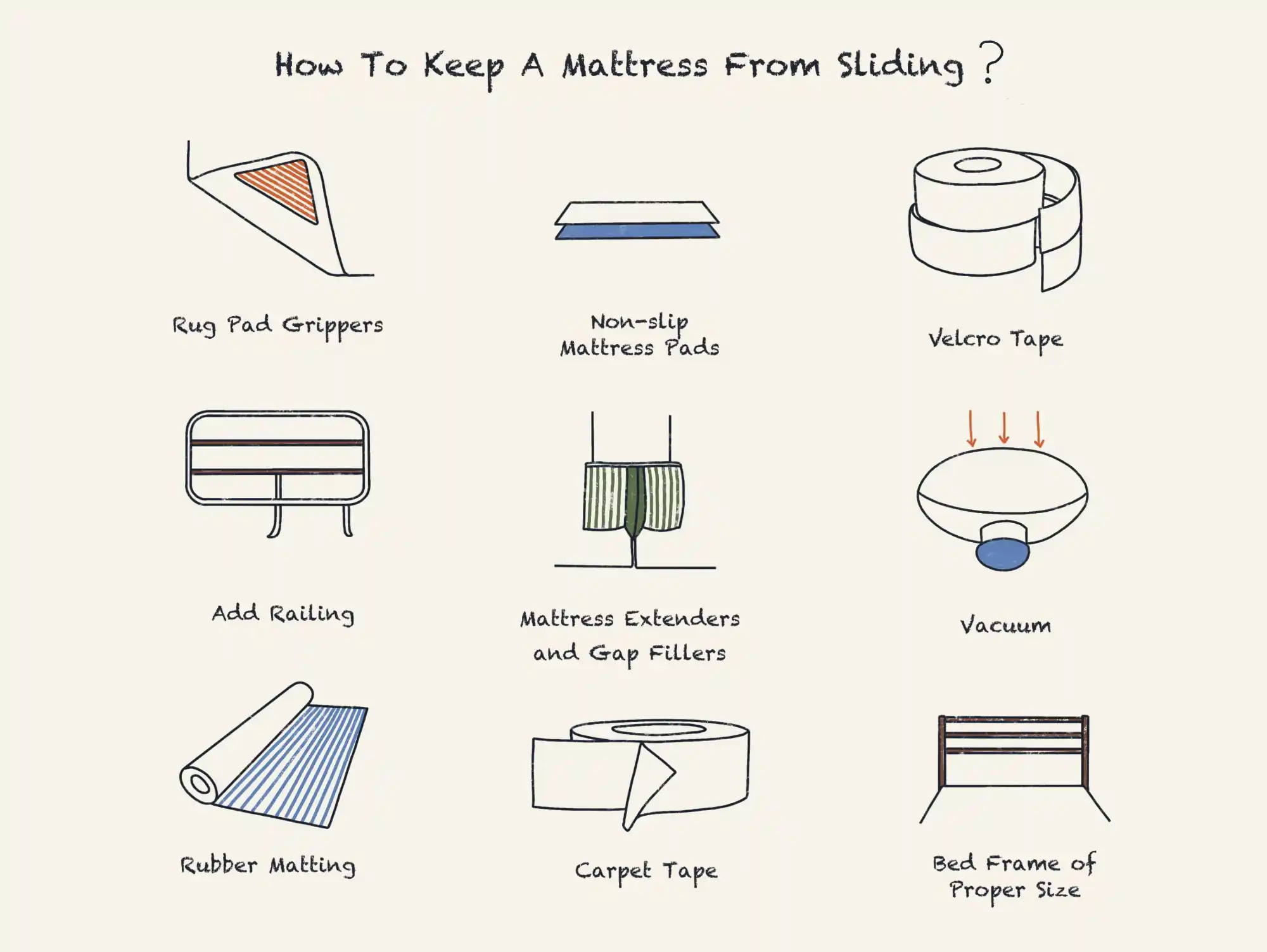
Mattress pads are designed to protect your mattress and keep it in good condition. But, if the mattress pad slides and moves around, it defeats the purpose of having one. There are several reasons why your mattress pad is slipping, such as the size of the mattress, the type of mattress pad, and the lack of friction between the mattress and the pad.
Size of the Mattress: A mattress pad will slip if it is too small for the mattress. To ensure the mattress pad fits correctly, it should be at least an inch larger than the mattress on all sides.
Type of Mattress Pad: Mattress pads come in a variety of materials, such as cotton, polyester, and polyurethane. Cotton mattress pads are the least likely to slip, as the material is soft and pliable, while polyurethane pads are the most likely to slip, as they are stiff and less flexible.
Lack of Friction: Even if the mattress pad is the correct size, it may still slip if there is a lack of friction between the mattress and the pad. To create more friction and stop the mattress pad from sliding, you can use a non-slip pad, secure the mattress pad with mattress straps, or use a mattress pad with a grippy bottom.
By understanding the causes of mattress pad slipping, you can easily learn how to keep a mattress pad in place and protect your mattress from damage.
Prevention Strategies
Secure the Mattress to the Bed Frame
Using a few pieces of velcro, you can secure the mattress to the bed frame and stop sliding. Simply attach one side of the velcro to the bed frame and the other side of the velcro to the mattress. This will hold your mattress in place and stop it from sliding around.
Use a Mattress Gripper
A mattress gripper is a great tool to keep your mattress from sliding around. The mattress gripper is placed between the mattress and the bed frame and keeps the mattress in place. It is an inexpensive and easy solution to keep your mattress from sliding.
Use Mattress Clips
Using mattress clips is another great way to keep your mattress from sliding around. Mattress clips are placed between the mattress and the bed frame and keep the mattress in place. They are easy to use and provide a secure hold on the mattress.
Put Heavy Objects on the Mattress
Placing heavy objects on the mattress will help keep it in place and stop it from sliding around. It is important to make sure you do not put too much weight on the mattress so that it does not damage the mattress or the bed frame.
Use Non-Slip Mattress Pads
Non-slip mattress pads are a great way to keep your mattress from sliding around. These pads are placed between the mattress and the bed frame and keep the mattress in place. They are easy to use and provide a secure hold on the mattress.
Replace Your Old Mattress
If the problem persists despite the use of the above solutions, it may be time to replace your old mattress. An old mattress may not be able to hold its shape and can cause sliding, so replacing it with a new mattress may be the best solution to prevent sliding.
Using these strategies can help you easily stop your mattress pad from sliding and keep it firmly in place. Whether you use velcro, mattress clips, non-slip mattress pads, or heavy objects, you can find an effective solution to keep your mattress from sliding.
Frequently Asked Questions
What Materials Are Best For Preventing Mattress Pad Sliding?
The best materials for preventing mattress pad sliding are non-slip materials such as foam, rubber, and vinyl. Foam mattress pads often come with an adhesive backing that helps keep the pad in place. Rubber and vinyl mattress pads have a textured surface that helps them grip the mattress and keep them from sliding. Additionally, using safety pins to secure the corners of the mattress pad can also help keep it in place.
Does the Size of My Mattress Affect My Mattress Pad Sliding?
Yes. The size of your mattress affects the fit of your mattress pad and how likely it is to slide when you move. A mattress pad that is too small for your mattress will not lay flat against the mattress, leaving gaps for the mattress pad to slide. A mattress pad that is too big will have excess fabric that hangs over the edges, making it easier for the pad to move.
- Choose the Right Size: The best way to prevent your mattress pad from sliding is to choose the right size mattress pad for your mattress. Measure your mattress before purchasing a mattress pad to ensure it will fit correctly.
- Secure the Edges: If your mattress pad is still sliding, try securing the edges with mattress clips or pins. This will help keep the mattress pad firmly in place.
- Use Non-Slip Pads: Alternatively, you can use non-slip pads or mats underneath your mattress pad to keep it from sliding. This can be especially helpful when used on slick surfaces, such as hardwood floors.
By following these simple steps, you can easily keep your mattress pad from sliding and ensure that you get a better night’s rest.
How Long Will it Take Me to Stop My Mattress Pad from Sliding?
The answer is: it depends. Depending on the type of mattress pad you have and the methods you use, the time it takes to stop your mattress pad sliding can vary. Here are some tips to help you stop your mattress pad from sliding:
- Secure the mattress pad to the mattress: Many mattress pads come with straps or cords on the corners to help keep them in place. You can also use safety pins to attach the mattress pad to the mattress.
- Use a rubber underlay: A rubber underlay or non-slip pad can be placed underneath the mattress pad to help keep it in place.
- Use double-sided tape: Double-sided tape can be used to attach the mattress pad to the mattress.
- Use a mattress anchor: Mattress anchors are straps that go around the mattress and act as anchors to keep the mattress pad in place.
It typically takes between 5 to 15 minutes to stop your mattress pad from sliding. However, this does depend on the size of your mattress, the mattress pad and the methods you use. If you follow the above steps, you should be able to keep your mattress pad from sliding.
What can I do if my mattress pad continues to slide?
1. Use Non-Slip Mattress Grippers
If you’re still having trouble with your mattress pad sliding, you can purchase non-slip mattress grippers. These grippers are designed to keep your mattress pad firmly in place, often designed with a secure grip to ensure that your mattress pad stays in place.
2. Use Non-Slip Furniture Pads
Non-slip furniture pads are another great option for keeping your mattress pad in place. These pads are made of a non-slip material that adheres to your mattress pad, providing a secure grip that will keep it in place.
3. Use Non-Skid Sheets
Another option is to use non-skid sheets. These sheets are designed to help keep your mattress pad in place, often made with a rubberized material that helps to keep the mattress pad from sliding.
4. Use an Anchor Strap
An anchor strap is a great option for keeping your mattress pad in place. The anchor strap is designed to wrap around the mattress, keeping it firmly in place.
5. Use a Mattress Wedge
Finally, you can use a mattress wedge to keep your mattress pad in place. This wedge is designed to fit between the mattress and the bed frame, providing a secure grip that will keep your mattress pad from sliding.
Is There a Way to Prevent My Mattress Pad From Sliding in the Future?
1. Use Non-Slip Mattress Pads
Non-slip mattress pads are a great way to prevent your mattress pad from sliding. These pads are made of a special material that grips the mattress and mattress pad, providing a secure fit.
2. Use Gripper Strips
Gripper strips are a great option for those looking to secure their mattress pad. These strips are placed along the edges of the mattress and mattress pad, creating a secure hold.
3. Use Anti-Slip Tape
Anti-slip tape is similar to gripper strips but is designed to be placed underneath the mattress pad, making it less visible. The tape is applied to the mattress and mattress pad, creating a secure hold.
4. Use Mattress Anchors
Mattress anchors are designed to be placed between the mattress and the bed frame. These anchors help to keep the mattress and mattress pad in place, preventing sliding.
5. Vacuum the Mattress and Mattress Pad
Vacuuming the mattress and mattress pad can help to reduce the amount of friction between the two surfaces, reducing the chances of sliding.
6. Use Non-Slip Furniture Pads
Non-slip furniture pads can be placed underneath the mattress and bed frame, helping to keep the mattress and mattress pad in place.
7. Place a Rug or Carpet Underneath the Bed
Placing a rug or carpet underneath the bed can help to reduce the amount of sliding. The rug or carpet will add friction to the mattress and mattress pad, preventing it from slipping.
Conclusion
Using a mattress pad can help protect your mattress and provide a more comfortable sleep. However, if these pads tend to slide off, it can be an annoying and uncomfortable experience. Thankfully, there are a few easy ways to stop your mattress pad from sliding, such as using bed straps, using a non-slip mattress pad, or using a mattress cover. With these tips, you should be able to keep your mattress pad in place and enjoy a restful night’s sleep.
